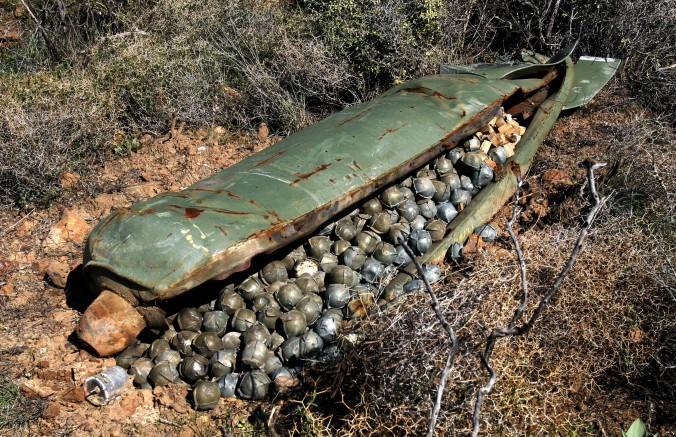
Israel Warns Public about Unexploded Bombs
In a recent development, Israel has issued a warning to its citizens to be cautious of unexploded bombs following a missile strike by Iran. The missile, which was reportedly equipped with a cluster bomb warhead, marked the first known use of such weapons in the conflict.
According to reports, the missile was fired by Iran at Israel, and while most of the device was destroyed by the Israeli military’s air defense systems, some of the submunitions – small bomblets designed to disperse and cause damage – failed to detonate. These unexploded submunitions can remain live for extended periods, posing a significant threat to civilians who may come across them.
Israel’s Home Front Command has urged citizens not to touch fallen objects from the missile strike, citing the potential danger posed by the unexploded submunitions. Instead, they advised calling emergency services immediately to report any suspicious items.
The warning comes as Israel and Iran continue to engage in a bitter conflict, with both sides exchanging missile strikes and other forms of aggression. The use of cluster bombs, which are banned by many countries due to their indiscriminate and devastating effects on civilians, is particularly alarming.
Cluster bombs are designed to release multiple submunitions, which can disperse over a wide area, causing widespread damage and harm to civilians. These devices can also remain live for extended periods, making it difficult to determine which ones have detonated and which ones have not.
In this case, the use of cluster bombs by Iran has raised concerns about the potential harm to civilians in Israel. The Israeli military has been working to clear the area of any remaining submunitions, but the process is complex and time-consuming.
The dangers posed by unexploded bombs are well-documented, and civilians are often the most vulnerable to their effects. In addition to the immediate risk of injury or death, unexploded bombs can also contaminate soil and water, causing long-term damage to the environment and human health.
Israel’s warning to its citizens serves as a reminder of the importance of caution and vigilance in the face of military conflict. Civilians should always err on the side of caution when it comes to unexploded bombs, and should never attempt to touch or handle them.
Instead, they should follow the guidelines set forth by the Home Front Command, which include:
- Avoiding areas where the missile strike occurred, as they may be contaminated with unexploded submunitions
- Not touching or handling any fallen objects, as they may be live bombs
- Calling emergency services immediately to report any suspicious items
- Following the instructions of emergency responders and military personnel
In conclusion, the warning issued by Israel highlights the importance of caution and vigilance in the face of military conflict. The use of cluster bombs by Iran has raised concerns about the potential harm to civilians in Israel, and the need for civilians to be aware of the dangers posed by unexploded bombs.
As the conflict between Israel and Iran continues, it is essential that civilians on both sides take steps to protect themselves and their communities. By following the guidelines set forth by the Home Front Command and exercising caution in the face of military conflict, civilians can minimize their risk of harm and ensure their safety.
Sources:
https://thecsrjournal.in/what-cluster-bomb-missile-iran-fired-at-israel/






